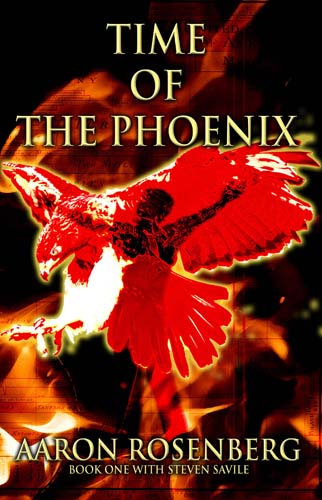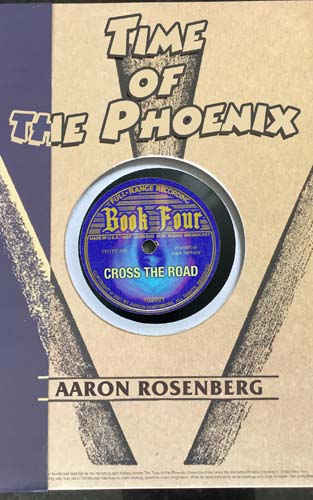Today, Aaron Rosenberg tells us how he allows research to inspire his writing in other people’s worlds without getting bogged down in it. And how it inspires his original works.


I love research. Maybe it’s the failed academic in me (I have a Master’s in English Lit and had finished all my PhD coursework before I left the field) but I do, I love getting stuck into history and mythology and language and culture and clothes and so many other things you can read about and learn about. And of course the Internet makes that all so dangerously easy, you click on just one link and it leads to a dozen others and pretty soon you’ve spent the past three hours reading about some obscure headgear and the rites associated with it and your eyes are killing you and you’ve completely missed dinner.
This is both a good thing and a bad thing. Not the eyestrain and missing dinner part, that’s all bad. But falling down the research rabbit hole. Because it can lead to so many amazing story ideas.
That’s even more true when you combine it with my favorite way to come up with stories in an existing IP (or intellectual property), which is to “mind the gap.” When I start thinking up ideas for an IP, I like to look around, see what’s where, and see where the spaces are, the little chinks between the big bricks of worldbuilding and history and character development. Those chinks are missing material, spots that weren’t necessary to create the setting and the main story—but they often contain fun little moments a writer can exploit, throwaway mentions you can tease out into an interesting tale that helps fill in the space and make the wall that much more solid and believable. And fun.
Most of the time, I only use that technique for tie-in writing. After all, if it’s my own world I’m the one creating those big blocks in the first place.
But that’s not how things went with Time of the Phoenix.
When Steve Savile and I first had the idea, we just had the one setting, Elizabethan London, and the playwriting scene there in particular. But we knew we’d want more. So we started looking at history, and especially at major literary figures.
Hence the rabbit hole.
What we found initially, and what I found later as I continued the project on my own, were lots of little gaps, the kind that occur naturally all the time—a person’s life documented here and there but nothing between those two moments, a single brief mention of a strange incident with little context and no follow-up, a bit of folklore wrongly attributed but now indelibly linked to that person. All those fun little gaps that can lead to exciting, amazing stories that both fit into real-world history and are wholly original fiction at the same time.
I wonder if I should go back and thank my old professors for getting me hooked on that? Maybe I should just send them some of my books instead. They’re clever, they should see what I mean.
---
Aaron Rosenberg is the author of the best-selling DuckBob SF comedy series, the Time of the Phoenix historical dark fantasy series, the Relicant Chronicles epic fantasy series, the Dread Remora space-opera series, and, with David Niall Wilson, the O.C.L.T. occult thriller series. His tie-in work includes novels for Star Trek, Warhammer, World of WarCraft, Stargate: Atlantis, Shadowrun, and Eureka. He has written children’s books (including the award-winning Bandslam: The Junior Novel and the #1 best-selling 42: The Jackie Robinson Story), educational books, and roleplaying games (including the Origins Award-winning Gamemastering Secrets). You can follow him online at gryphonrose.com, on Facebook at facebook.com/gryphonrose, and on Twitter @gryphonrose.